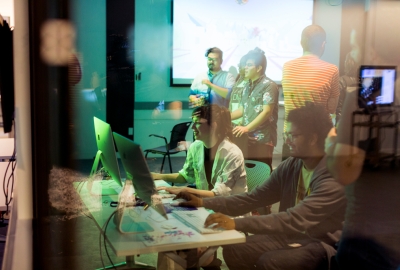Through Kaleidoscope Dancers, the program’s academic service learning practical training course, students coordinate lesson goals, outcomes, and workshop focus with cooperating teachers from the NYC DOE. Students collaboratively teach interactive lesson plans to school groups, perform repertory for children, support and participate in classes, and facilitate choreographic groups of children and KD dancers to create original choreography and music scores with the KD Music Director. For students enrolled in certification-track programs, this course allows students to accumulate required pre-student teaching fieldwork hours.
Course #
MPADE-GE 2611
Credits
1 - 2
Department
Music and Performing Arts Professions


